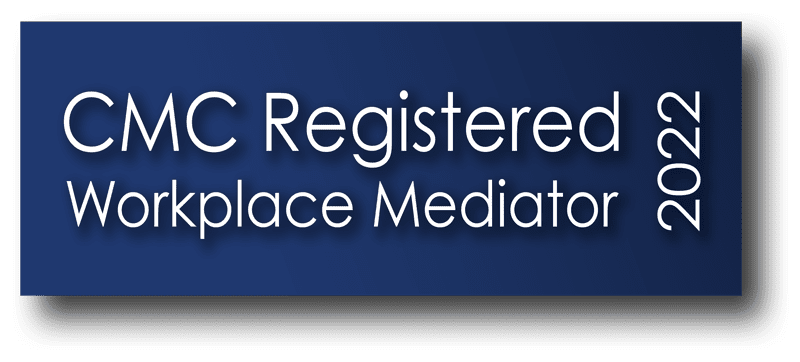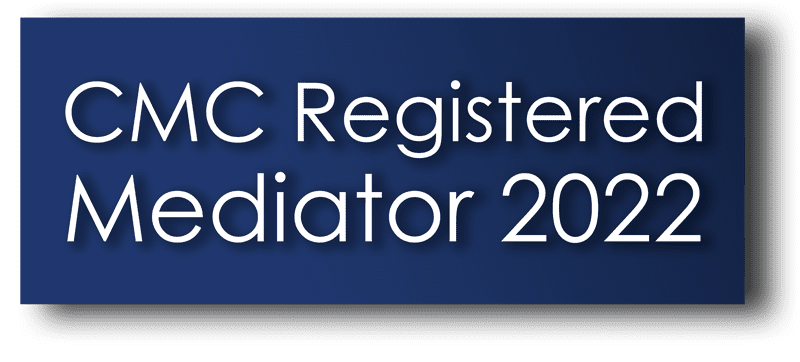

What is Mediation?
Mediation is a flexible process conducted confidentially in which a trained neutral mediator, actively assists people and/or organisations to work towards a negotiated agreement of a dispute.
This can be a useful process at both an informal stage of a dispute or at a formal stage. Both parties are in ultimate control of the decision to settle and the terms that are agreed to resolve the matter.


Come Together
and Agree
Mediation can be a far more effective, plus a quicker and much cheaper, way of resolving issues than going through the courts. It can also reduce the associated stress and trauma, which can be the result of a lengthy legal dispute, for all parties.
Any form of dispute can be mediated; it does not necessarily need to be work or employee based; it an include business disputes, commercial disagreements and family matters.
We have seen mediation work, both personally and professionally; plus the difference it can make to all parties. It does need all parties to be willing to proactively participate in the process.
Although all our mediators are trained to be able to conduct civil and commercial mediations, our specialism is resolving conflict in the workplace and as a result our mediators have undergone further intense and specific training in this area.
Workplace Mediations
When to Consider Mediation
It is a fact that we are all different and when people come together in the workplace, conflict at some point is inevitable. Whilst there is still a time and place for traditional conflict resolution policies and process in the workplace, over the past few years there has been a strong movement towards a more flexible, informal, confidential and person centric approach which focuses on engaging the parties to work together to address the issues and develop strategies to prevent similar conflict arising in the future. Mediation has proved hugely effective in repairing and restoring relationships across all industries and levels within an organisation creating a more inclusive, diverse and transparent culture. Rather than allowing an issue to snowball into something larger and more damaging, mediation acts to stem the flow and restore peace.

The business case for using mediation is it:
- Provides a quick resolution
- Addresses low morale
- Reduce absenteeism
- Reduces stress in the workplace
- Increases productivity
- Reduces the effect on the conflict on the wider team
- Improves retention rates
- Reduces the risk of reputation damage
- Facilitates Change and Transformation
- Improves trust and encourage openness
- Costs less in the long run
- Repairs working relationships
The Business Case
for Mediation
In a 2019, the CIPD (Chartered Institute of Personnel and Development) conducted a study into the cost of conflict in the workplace and the results published in 2021 showed that over 9.7m employees (29% of the UK’s workforce) have had first-hand experience of conflict in the workplace which has impacted on their day to day work. This was estimated to have cost UK businesses a staggering £28.5 billion a year.
Benefits of Mediation
on the Employee
At the point a formal process is started, the likelihood of being able to restore a working relationship between the parties diminishes. The process labels a winner and a loser and that decision is in the hands of a more senior colleague or an external body such as an Employment Tribunal.
As well as the benefits to a business, the benefits to the individual employees and the wider team of early intervention in conflict situations are equally as powerful.
Mediation can help restore the power imbalance for employees by empowering the parties to:
- Hold open and honest conversations that would normally be too difficult to have without fear of repercussions.
- Explore both parties’ issues and concerns
- Understand and empathise with each other’s emotions and situations.
- Engage jointly in problem-solving to find a solution that each side feels is fair and reasonable.
- Encourage better communication and establish workable relationships moving forward.
- Develop the skills to resolve workplace difficulties for themselves in future.
- Improve employees overall wellbeing.

The process
Both parties need to agree to mediation in order for it to work. It is a completely voluntary process to ensure that both parties come to mediation with the mindset that they want to try and resolve their issues. The mediator will be a completely neutral third party who has no decision-making capacity and will use their trained skills to facilitate effective communication between the parties. At the beginning of the process, the mediator will spend time with each of the parties individually exploring their issues, concerns and establishing the parties needs. Once this stage of the process has been completed, the parties are invited into a joint session where these issues and concerns are voiced, and their needs addressed, in a safe and secure environment. The aim of the process is to encourage the parties to agree to certain actions which are then documented for clarity and presented in the form of an agreement between them.

You were brilliant – thank you
You are a pleasure to work with
The path forward, was not the one I expected to find; but it worked for us all – thank you
I have learned a huge amount about myself; the combination of coaching, psychometrics & mediation worked really well
You came across as very approachable, friendly and warm. This instantly put everyone at ease.
Great job, you are excellent mediator.
You conducted an excellent person-centred mediation
You were excellent and I’d recommend you to anyone looking for a mediator! Natural ability and a very calm manner….….
You were remarkable to work with: your professionalism and ability enabled you to isolate the salient issues in our dispute and facilitate a mutually satisfactory conclusion
Highly professional yet warm and empathetic
Other services
Consulting
Coaching
Mentoring
Guest Speaker


